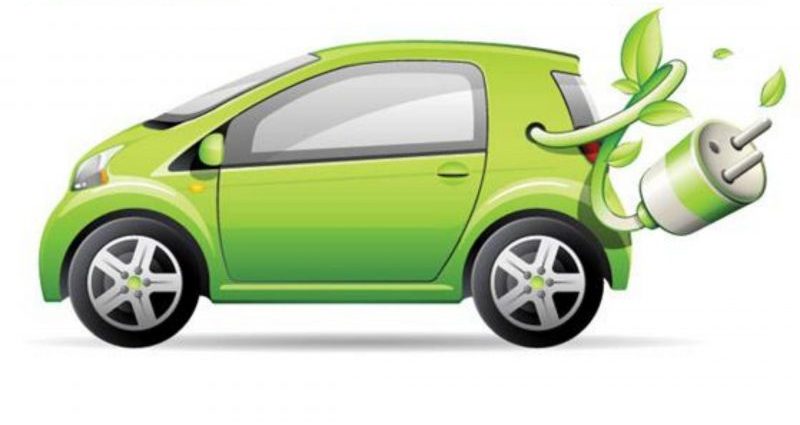
Government Incentives for Eco Vehicle Adoption
Introduction
The topic of government incentives for eco vehicle adoption holds great importance in today’s world. As the effects of climate change become more evident, there is a growing need to reduce emissions and promote sustainable transportation. Recognizing this need, governments worldwide have started incentivizing the adoption of eco-friendly vehicles. These incentives not only aim to lower the carbon footprint but also accelerate the transition to a greener future.
Historical Background
To understand the current focus on government incentives, it is necessary to delve into the historical context of eco-friendly vehicles. Over the years, various milestones, legislation, and initiatives have influenced the adoption of these vehicles. Governments have gradually shifted their priorities towards sustainability, realizing the need for eco-friendly transportation options. The development of government incentives can be traced back to the growing understanding of the environmental impact of conventional vehicles and the need for alternative solutions.
Key Concepts and Definitions
To fully grasp the concept of government incentives for eco vehicle adoption, it is important to define key terms. Eco vehicles, also known as environmentally friendly vehicles, are those that significantly reduce emissions and have a smaller carbon footprint compared to traditional vehicles. Government incentives refer to the measures taken by governments to stimulate the adoption of eco vehicles. These incentives can take various forms, such as tax credits, grants, rebates, and subsidies. However, eco vehicles must meet certain criteria, such as emission standards or fuel efficiency ratings, to qualify for these incentives. The concept of adoption pertains to the acceptance and utilization of eco vehicles by consumers.
Main Discussion Points
Economic Incentives
Government incentives play a crucial role in stimulating demand and lowering the cost of eco vehicles. Economic incentives, such as tax credits or rebates, have proven to be effective in encouraging consumers to opt for eco-friendly options. Studies have shown that these incentives can significantly impact the adoption rates of eco vehicles. By reducing the financial burden on consumers and manufacturers, economic incentives create a win-win situation for all stakeholders involved.
Infrastructure Development
Government incentives also support the development of infrastructure for eco vehicles. Charging stations or hydrogen refueling stations are essential for the widespread adoption of electric vehicles or fuel cell vehicles. These incentives can help overcome the challenges associated with infrastructure development by providing financial support and regulatory frameworks. Successful infrastructure projects have facilitated eco vehicle adoption by ensuring convenient access to charging or refueling facilities.
Education and Awareness Programs
Education and awareness programs are instrumental in promoting eco vehicle adoption. Governments employ various strategies to educate the public about the benefits of eco vehicles, including social media campaigns, public service announcements, and educational workshops. These programs raise awareness about the positive environmental impact, cost savings, and technological advancements associated with eco-friendly vehicles. Successful education and awareness campaigns have led to increased consumer interest and a greater understanding of the advantages of eco vehicles.
Case Studies or Examples
Several countries and regions have implemented successful government incentives for eco vehicle adoption. For instance, Norway has witnessed a remarkable surge in electric vehicle sales due to its comprehensive incentive programs, including tax exemptions, toll discounts, and free parking. The impact of these incentives is evident in Norway’s significant market share of electric vehicles. Similarly, China has implemented a range of incentives, including purchase subsidies, license plate lotteries, and preferential policies for electric vehicle owners, which have resulted in a rapid increase in eco vehicle sales.
Current Trends or Developments
Recent trends in government incentives for eco vehicle adoption include the introduction of new policies, legislation, and initiatives by governments worldwide. Many countries are setting ambitious targets for electric vehicle adoption and implementing stricter emission regulations. Additionally, research findings have shed light on the effectiveness of incentives and highlighted the potential for further advancements. Governments are increasingly recognizing the need for continued support and innovation to drive eco vehicle adoption.
Challenges or Controversies
While government incentives for eco vehicle adoption have proven to be effective, challenges and controversies exist. Differing viewpoints regarding the effectiveness and fairness of these incentives persist. Critics argue that such incentives may disproportionately benefit the affluent, as the initial costs of eco vehicles are often higher. Furthermore, limitations of existing incentive programs, such as budget constraints or administrative complexities, pose challenges to their widespread implementation.
Future Outlook
Government incentives for eco vehicle adoption are poised to shape the future of transportation. Advancements in technology and policy will play a crucial role in driving eco-friendly vehicle adoption. Continued government support, coupled with innovations in battery technology and charging infrastructure, will contribute to the proliferation of eco vehicles. It is imperative that governments worldwide remain committed to sustainability and prioritize the development of comprehensive incentive programs.
Conclusion
In conclusion, government incentives for eco vehicle adoption are indispensable in addressing environmental challenges and promoting sustainable transportation. By stimulating demand, supporting infrastructure development, and raising awareness, these incentives play a crucial role in accelerating the transition to eco-friendly vehicles. Further research and action are necessary to expedite the adoption of eco vehicles and ensure a greener future for generations to come.